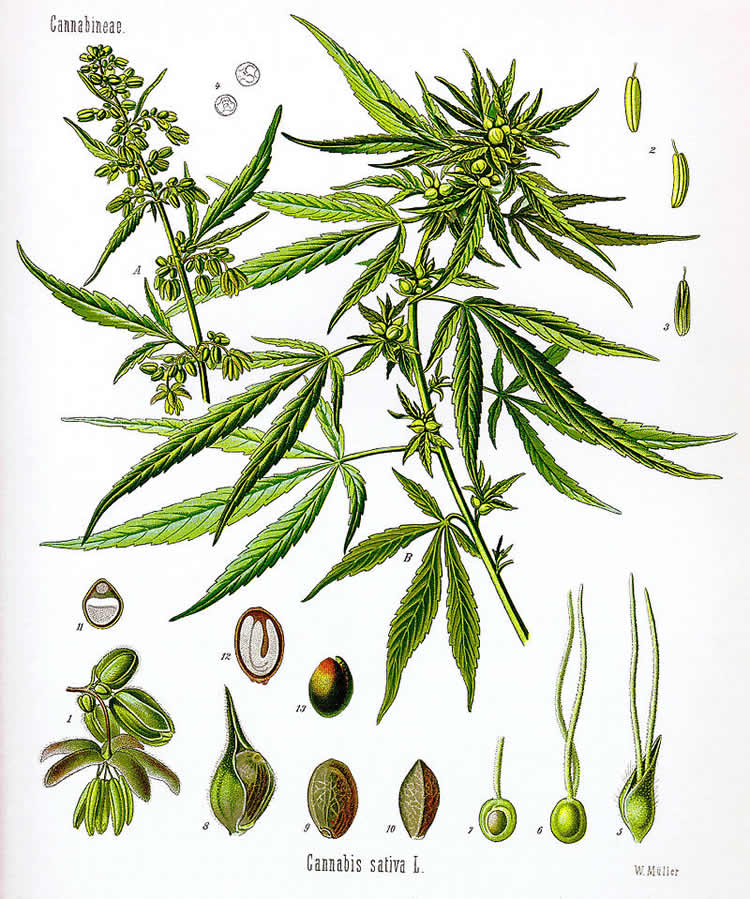New research reported in The Journal of Pain shows that inhaled cannabis reduces diabetic neuropathy and the analgesic effect is dose-dependent.
Researchers at the University of California San Diego conducted a randomized, double-blind study evaluating 16 subjects to assess the efficacy and tolerability of inhaled cannabis for treating pain caused by diabetic peripheral neuropathy (DPN). They studied the effects of low, medium and high doses of inhaled cannabis on DPN pain and hyperalgesia. Subjects participated in four outpatient treatment sessions, separated by two weeks, in which they were exposed to placebo or three different doses of aerosol 1% THC, the most abundant and psychoactive compound in cannabis.
As a drug delivery method for marijuana research, inhalation is preferred because the pharmacokinetics of inhalation are superior to smoking, as peak effects occur quickly and are more easily titrated.

DPN occurs in half of diabetes patients and 15 percent have pain, especially in the feet. Many patients do not achieve satisfactory relief from two FDA-approved treatments. Animal research in models of neuropathic pain suggest that cannabinoids may be effective in reducing pain, but no studies have focused specifically on painful DPN.
“We hypothesized that inhaled cannabis would result in a dose-dependent reduction in spontaneous and evoked pain with a concomitant effect on cognitive function,” said lead author Mark S. Wallace, M.D., professor of anesthesiology, University of California San Diego School of Medicine.
Results showed there was a dose-dependent reduction in pain intensity from inhaled cannabis, which the authors noted is consistent with results of other trials of the drug for diverse neuropathic pain syndromes.
“The dose dependent analgesic effect was evident for both spontaneous and evoked pain in the trial subjects, but it was more consistent on spontaneous pain,” said Wallace.
The also authors reported that all subjects experienced either euphoria or somnolence, which may limit the acceptability of cannabis as an analgesic. However, in measuring the impact of inhaled cannabis impact on cognition (attention and memory), they found modest effects with no dramatic declines or impairments.
“These findings along with previous studies suggest that cannabis might have analgesic benefit in neuropathic pain syndromes, including treatment-refractory DPN,” said Wallace.
Source: American Pain Society
Image Credit: The image is credited to W. Müller and is in the public domain
Original Research: Abstract for “Efficacy of Inhaled Cannabis on Painful Diabetic Neuropathy” by Mark S. Wallace, Thomas D. Marcotte, Anya Umlauf, Ben Gouaux, Joseph H. Atkinson in The Journal of Pain. Published online July 7 2015 doi:10.1016/j.jpain.2015.03.008
Abstract
Efficacy of Inhaled Cannabis on Painful Diabetic Neuropathy
A randomized, double-blinded, placebo controlled crossover study was conducted in 16 patients with painful diabetic peripheral neuropathy to assess the short-term efficacy and tolerability of inhaled cannabis. In a crossover design, each participant was exposed to 4 single dosing sessions of placebo or to low (1% tetrahydrocannabinol [THC]), medium (4% THC), or high (7% THC) doses of cannabis. Baseline spontaneous pain, evoked pain, and cognitive testing were performed. Subjects were then administered aerosolized cannabis or placebo and the pain intensity and subjective “highness” score was measured at 5, 15, 30, 45, and 60 minutes and then every 30 minutes for an additional 3 hours. Cognitive testing was performed at 5 and 30 minutes and then every 30 minutes for an additional 3 hours. The primary analysis compared differences in spontaneous pain over time between doses using linear mixed effects models. There was a significant difference in spontaneous pain scores between doses (P < .001). Specific significant comparisons were placebo versus low, medium, and high doses (P = .031, .04, and <.001, respectively) and high versus low and medium doses (both P < .001). There was a significant effect of the high dose on foam brush and von Frey evoked pain (both P < .001). There was a significant negative effect (impaired performance) of the high dose on 2 of the 3 neuropsychological tests (Paced Auditory Serial Addition Test, Trail Making Test Part B.
Perspective
This small, short-term, placebo-controlled trial of inhaled cannabis demonstrated a dose-dependent reduction in diabetic peripheral neuropathy pain in patients with treatment-refractory pain. This adds preliminary evidence to support further research on the efficacy of the cannabinoids in neuropathic pain.
“Efficacy of Inhaled Cannabis on Painful Diabetic Neuropathy” by Mark S. Wallace, Thomas D. Marcotte, Anya Umlauf, Ben Gouaux, Joseph H. Atkinson in The Journal of Pain. Published online July 7 2015 doi:10.1016/j.jpain.2015.03.008






